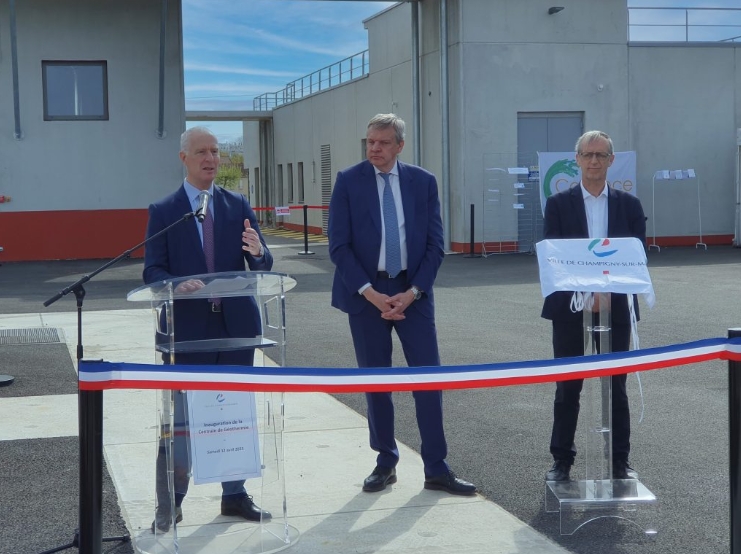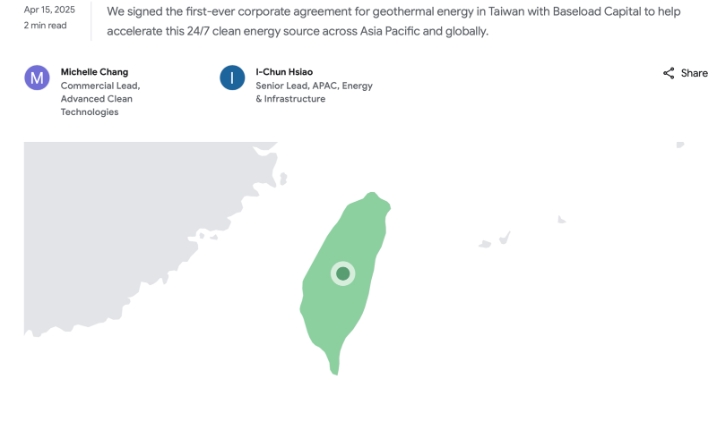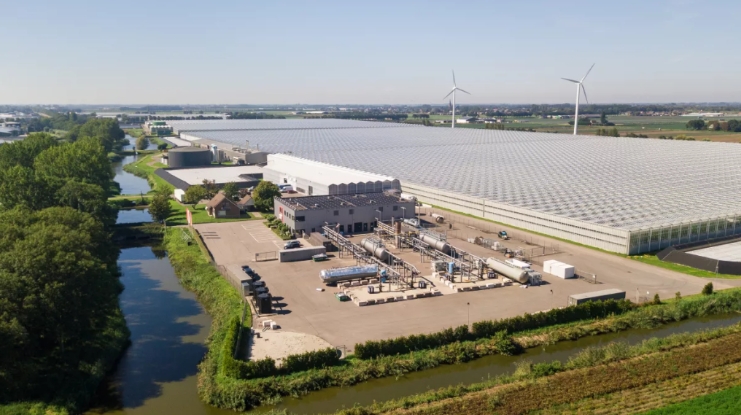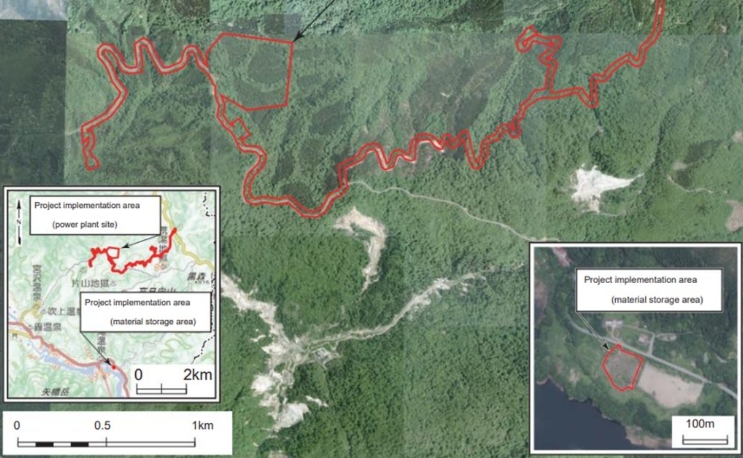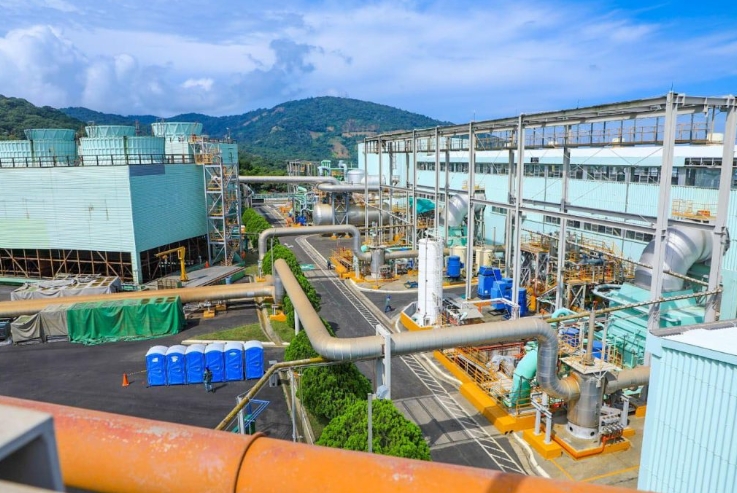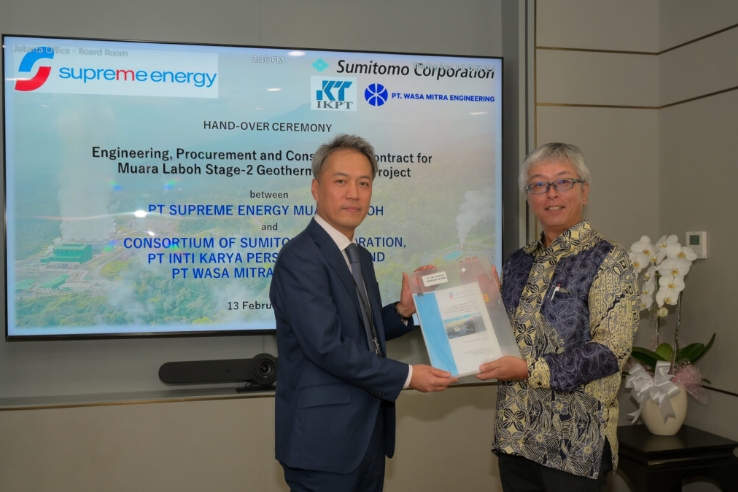Gas-fired power generation in the U.S. remains the top source of electricity production. A POWER analysis of projects shows nearly 180 gas-fired units are either under construction or in development nationwide, with more than 2,000 gas-fired plants currently in operation.
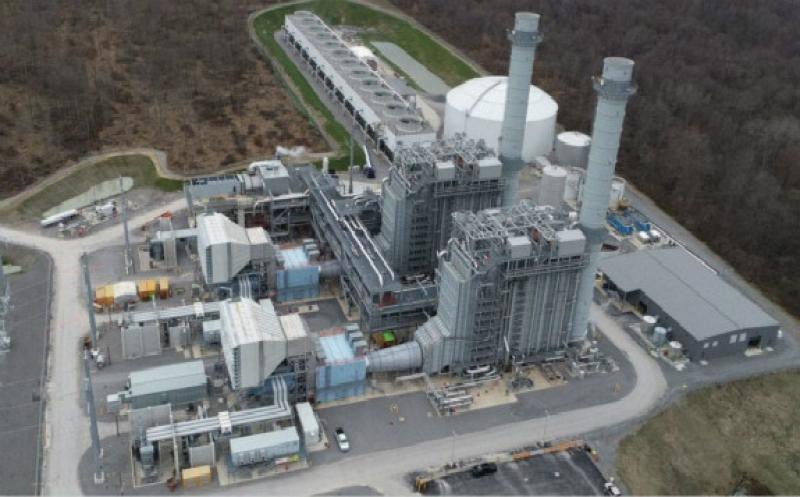 The Hickory Run Energy Center in New Castle, Pennsylvania, is powered by two Siemens gas turbines. The plant began sending power to the PJM Interconnection on June 1, 2020. Courtesy: Tyr Energy
The Hickory Run Energy Center in New Castle, Pennsylvania, is powered by two Siemens gas turbines. The plant began sending power to the PJM Interconnection on June 1, 2020. Courtesy: Tyr Energy
One of the most-recent plants to come online is the $863 million, 1,000-MW Hickory Run Energy Center near New Castle, Pennsylvania, northwest of Pittsburgh. The project’s developers, including Kansas-based Tyr Energy, a subsidiary of Japan’s ITOCHU Corp.; Kansai Electric Power Co. (KEPCO); and Siemens Financial Services, in mid-June publicly announced that the plant began commercial operations in mid-May.
“We’ve been going pretty steadily. It’s in the market and producing electricity much of the time. This is an efficient unit. So we expect it to stay operational most of the time,” Brock Shealy, vice president of Hickory Run LLC and chief administrative officer of Tyr Energy, said in a statement. “Hickory Run itself has state-of-the-art emission controls, so it’s something that’s going to be looked at as an important part of energy production for PJM,” the regional transmission organization. Hickory Run is Tyr Energy’s first greenfield power plant in the U.S. The facility sources natural gas from the Marcellus and Utica shales.
Garrick Venteicher, president and CEO of Tyr Energy, in a statement said, “Tyr Energy is proud to formally announce the commercial operation of the Hickory Run Energy Center. We are pleased to have collaborated with two world class partners, Kiewit Power and Siemens, to bring this important energy infrastructure project to completion.” NAES Corp., a Tyr affiliate, will provide operations and maintenance services to the project.
Powered by Siemens Turbines
The plant is owned and operated by Hickory Run Holdings, a joint venture of Tyr Energy (50%), KEPCO (30%), and Siemens Financial Services (20%). It is powered by two Siemens SGT6-8000H gas turbine generators, two heat recovery steam generators (HRSGs), and a Siemens steam turbine generator. “We are proud to be a part of this project with Tyr Energy and Kansai, adding efficient, clean and reliable energy to the PJM region’s energy supply with our proven combined-cycle technology,” said John Gibson, Executive VP and Head of Sales, North America, for Siemens Energy, in a news release. The plant began selling power into the PJM system on June 1.
Rob McBride, senior director of stratgey and analytics at Enverus Energy, in a recent interview with POWER said, “There is certainly a future for gas-fired generation both in the U.S. and abroad. There is somewhere close to 20 gigawatts in various stages of construction in the U.S. and another 20 or so gigawatts in various stages of regulatory approval. Not surprisingly the majority of these located in Pennsylvania, Ohio, and Texas, with Florida not far behind. Absent a scalable breakthrough in battery storage, natural gas will continue to provide significant baseload generation in addition to being called on to fill variable gaps in intermittent wind and solar. The same rationale applies globally, particularly in emerging markets such as China and India.”
Judah Rose, an executive director at ICF, a global consulting services company that works with the energy industry, told POWER that while new gas-fired plants are being added, “There is also higher output from existing gas plants in response to lower gas prices, decreased coal plant dispatch, coal retirements, and demand growth. Renewables account for the lion’s share of additions due to federal incentives, state renewable portfolio standards, favorable net metering, and lower costs.”
Michael Sloan, senior director of energy markets at ICF, told POWER: “In the U.S., power generation from natural gas grew by nearly 13% in 2018 and 8% in 2019 to reach 1,582 TWh. Renewable sources grew by nearly 4% in 2018 and less than 3% in 2019 to reach 755 TWh. While renewable sources of energy are becoming more competitive, natural gas supplies twice as much energy to the power sector as renewable sources, and its market share is growing faster. Most of the coal that has been displaced has been in favor of natural gas rather than renewable power.”
Sloan said that while “Natural gas is currently acting as the bridge fuel between coal and renewable power … it’s uncertain how long that bridge will last.” However, Sloan added that “ICF expects natural gas use in power generation to continue to increase through the mid-2030s.”
PJM—Another 30 GW of Gas by 2027
In PJM, which serves 13 states and the District of Columbia and is the nation’s largest grid operator, about 30 GW of new gas-fired generation has come online since 2008, and an additional 30 GW of gas-fired capacity is planned by 2027. The U.S. Energy Information Administration (EIA) in recent reports has said combined cycle gas-fired power plants, and solar and wind projects, would drive new U.S. power generation over the next several years, so expect to see more plants such as Hickory Run, particularly as technology continues to advance.
Hickory Run is constructed with state-of-the-art emission control technology comprised of selective catalytic reduction for NOx control, and an oxidation catalyst for the reduction of carbon monoxide (CO) and volatile organic compounds (VOC). The project uses treated municipal wastewater from the New Castle Sanitation Authority Unrestricted treatment facility. The authority has said revenue generated from the sale of water to the power plant will enable the agency to upgrade its system and support maintenance.
“The project made significant investments in protecting and improving the water quality of the Mahoning River,” Shealy said. “It reclaims treated municipal wastewater from New Castle Sanitation Authority. It reuses that water and can enhance the downstream environment.”
The plant employed about 500 workers during its three-year construction process, and has 23 full-time employees handling the facility’s operation.
